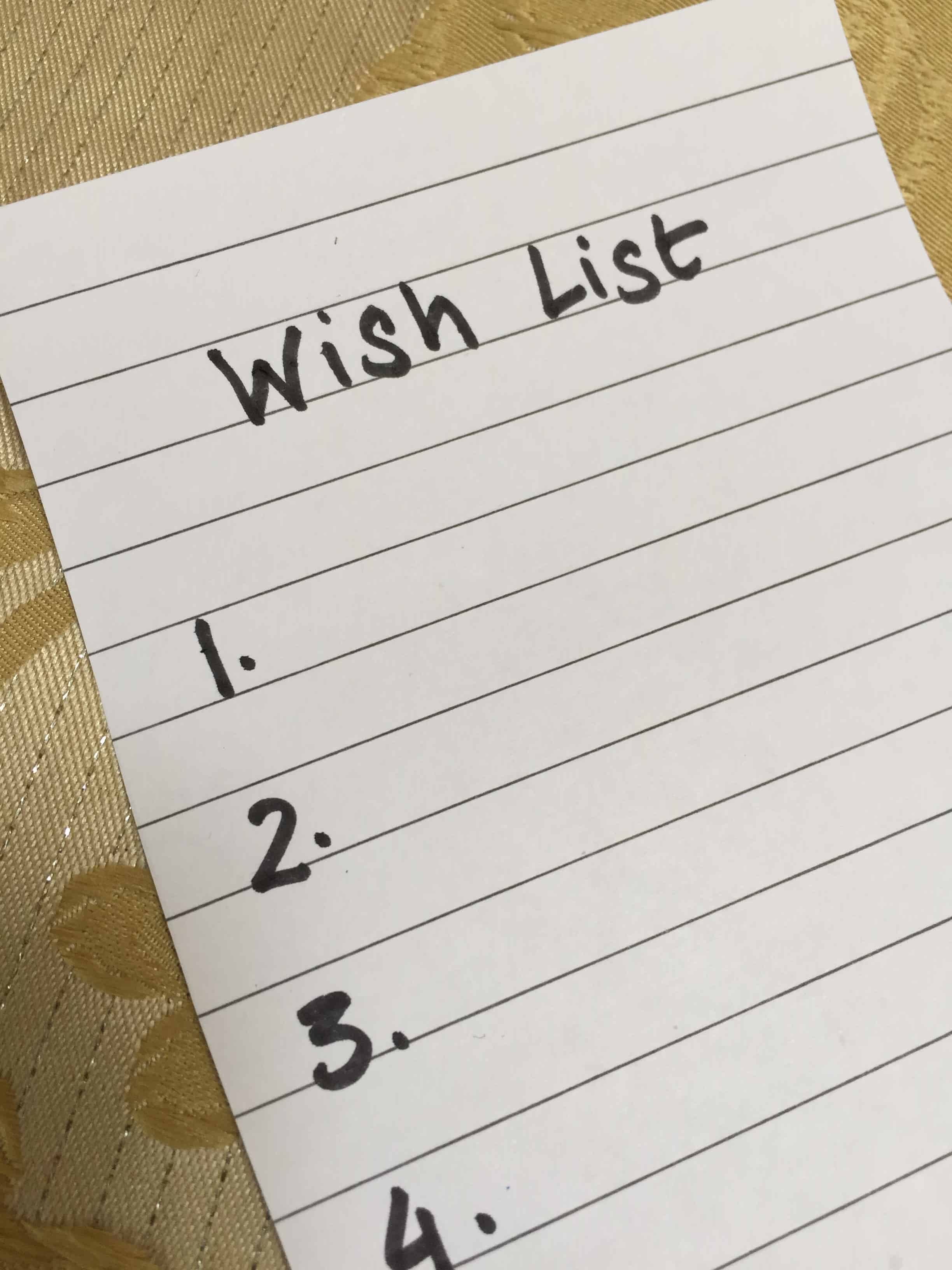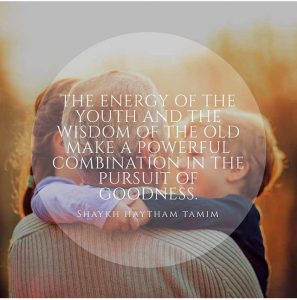The ‘if only’ Trap

The Three Greatest Blessings on Earth
How often are we waiting for just one thing to happen in order to reach a state of contment? The ‘If only I had…then everything would be perfect’ feeling
Yet one simple hadith sums up everything that is perfect for us Right Now, and short du’a specifies the Two Things which contain all we need.
‘Whoever amongst you wakes up with safety in his community and with a healthy body and he has the food for the day it is as if the whole world has been brought forward to him’. (Bukhari)[i]
In this particular hadith we see that the Prophet (peace be on him) is emphasising the favours which Allah Almighty bestowed upon humanity. So often, we take these favours for granted and we do not reflect upon them, but the Prophet (peace be on him) is reminding us of them.
Peace and Security
The first favour is safety and security. No wonder the first supplication made by Ibrahim (peace be on him) was:
‘My Lord make this place peaceful and provide for its dwellers fruits and provisions’. (2:126)
So, He prioritised safety before food, and before provisions.
Even in shariah and in our Islamic calendar we have four months known as sacred months, al ashhur al hurum, to emphasise the importance of safety and security because in these months we are not allowed to start fights. Worshippers are protected so that they may go for umrah and worship Allah Almighty during Rajab, Muharam, Dhul Qadah or or in Dhul Hijjah for Hajj, ensuring the of the ibaad (worshippers). And Allah Almighty prescribed punishments as deterrents for those who destroy security and peace in the community, to prevent them from putting people under threat or under fear. And this is why we see Allah Almighty say in surah Quraysh, fa’l ya budu rabba hadal bayt,
‘Let them worship the Lord of this House, who fed them against hunger and provided them with security against fear.’ (106:3-4)
Safety and security is a crucial element in our religion. You cannot seek rizq without safety. You cannot do your job without security and peace. You cannot do your ibaada if you are in danger. It is a basic necessity and hence protection of our life is the first aim of the shariah.
So, the Prophet (peace be on him) is saying in this hadith that whoever wakes up in the morning safely and peacefully, without the threat or war or fear, then this is one of the best favours that Allah Almighty bestowed on him.
Sadly, in the Muslim world these days, we see no safety, no security, no peace. May Allah Almighty bring back safety and security to all Muslims and all people around the world.
Whoever wakes up with sirbihi or peace and security either himself, or his family and community, or on his way back should be grateful to Allah Almighty. This peace may not last if we are not grateful for Allah’s favours or complying with Allah’s commands. It can be disturbed by ingratitude as we see in many verses of the Qur’an where nations were rebellious and ungrateful, so Allah Almighty punished them.
The Prophet (peace be on him) is reminding all of us and especially those who are heedless, unaware of these favours even though they are benefiting from them. If you have this peace in your life, be grateful.
Health
The second thing which the Prophet (peace be on him) is drawing our attention to is al mu’afn fi badan, if you wake up and you have health – your body is intact, when you move your hand it moves, when you open your eyes you see, you can walk on your feet, you can taste things, you can smell, you can eat, you can drink… we take these for granted.
However, there are many people who have lost these senses, many people who cannot walk, many people who cannot move their hands, and are paralysed. So, if we wake up every day with a healthy body then we need to be grateful to Allah Almighty for these favours. Thus the best naima (blessing) after imaan is health. When Aisha asked the Prophet (peace be on him) ‘If I witness laylatul qadr, what sort of du’a should I make?’. He directed Aisha to say,
‘Oh Allah, you are all forgiving, loves forgiveness, so forgive me’.
When Abbas the Prophet’s (peace be on him) uncle came to him and asked, ‘Oh Messenger of Allah, give me a special du’a. You know I’m your uncle, so you should give me something special.’ The Prophet (peace be on him) said ‘Oh Abbas, ask Allah for afu (forgiveness) and afiya (wellbeing).’
Abbas came back the next day, and again requested a special du’a, as if he was not satisfied with the previous du’a. And then the Prophet (peace be on him) repeated, ‘You ask Allah for afu (forgiveness) and afiya (wellbeing). On the third occasion, when he asked the same thing, the Prophet (peace be on him) said
‘You will never be given something better than these two’.
Scholars have commentated that this hadith is min jawabin al kalim – comprehensive speech in which he has summed up volumes in short words. With forgiveness, you have secured the akhirah, the hereafter. And with good health, you have secured the dunya. Because without good health you can’t do anything.
Therefore if you have peace in your life then be grateful and do not disturb this peace. If you have good health, be grateful for this and do not disturb this by rebelling against Allah Almighty or utilising what He has given to you to sin, or go against His commands.
Food, Consumerism and Discontent
The third favour which the Prophet (peace be on him) mentioned is having food for the day. How many of us have food for the year, not just for the day? Alhamdolilah we have plenty. So the Prophet (peace be on him) is directing us towards gratefulness because it is a very common to be ungrateful. Many people are not satisfied with what they have been given. They are always asking for more. So contentment is not on the list. Greed is there instead. So appreciate it if you have something satisfactory and good and it is enough for you. Ingratitude is linked to discontent. And the consumerism mentality which we have, the media which we are poisoned with, the advertisements all the way through are creating a mentality of ungratefulness, and a mentality of greed. And then we tend to forget that alhamdulilah, we have more than enough, more than the food for the day, so we should be very grateful to Allah Almighty and always be content with what we have because contentment makes you closer to Allah Almighty and greed takes you away from Allah Almighty.
Contentment brings you closer to Allah
We need to remind ourselves about these favours. At the end of this hadith the Prophet (peace be on him) finished with ‘it is as if the whole world has been brought forward to him.’ Imam al Munawi commentated on that and he said these favours sum up everything you can get out of this dunya.
Imagine that you have the ownership of the whole world, it’s under your possession. What do you get out of it? Peace, good health and what sustains you to live, what more do you need? So you have it already, you have the food for the day, you have your health alhamdulilah and you have peace, so focusing on the one thing you don’t have, or nagging or feeling dissatisfied obscures your vision of the greatest blessings you have. The sense that ‘If only I had xyz…’ takes away the contentment that you would otherwise be feeling if your peace, health or food had been taken away and then restored.
We ask Allah Almighty to keep us on the straight path and give us good understanding from His book and the sunnah of his Prophet (peace be on him). Ameen
[i] Tirmidhi, Majah and Bukhari
For your weekly dose of wisdom, subscribe to the Living Qur’an. First Month Free.
The Khutbah Project
An initiative to involve our young volunteers in learning and spreading their deen through transcribing khutbahs.
If you would like to be involved, please contact: ayesha.khan@utrujj.org
Recommended Posts

The truth is more powerful than lies
July 26, 2024

Global IT outage. When systems go down…
July 19, 2024


